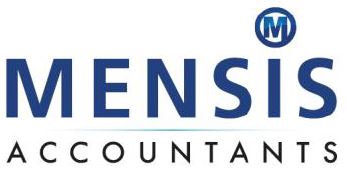From 2018 onwards, unincorporated businesses and landlords with an annual income above £10,000 will be rolled into keeping digital accounting records in stages using software, apps and spreadsheets, and will have to file quarterly figures with HMRC. These obligations will also apply to companies from 2020.
Some taxpayers will be exempt, such as charities, community amateur sports clubs (CASCs); and taxpayers who can’t use digital equipment due to disability, age or remoteness of location.
Free software with limited functionality will be available for taxpayers with straightforward tax affairs, though commercial accounting software with more functionality will be preferable for many. Businesses will also be able to use spreadsheets if they wish, but will have to ensure they meet the necessary requirements.
Digital timetable
- April 2018 – Digitisation of income tax, National Insurance Contributions (NICs) and Capital Gains Tax (CGT)
- April 2019 – Digitisation of VAT
- April 2020 – Digitisation of corporation tax
Digital quarterly reporting
Businesses will send details of their income and expenditure to HMRC once a quarter. New businesses will have to submit their first update within four months of commencement. Businesses eligible for three line accounts will be able to submit a quarterly update with only three lines of data (income, expenses and profit). There will be time after the end of each accounting period to make any adjustments to the updates that have been filed.
Cash basis
HMRC is proposing to allow unincorporated business with up to £150,000 of turnover to use the cash basis for their financial filings. This would allow certain adjustments for debtors, creditors etc. to be ignored.
Companies
By 2020, most companies will also have to start filing quarterly updates to HMRC for corporation tax purposes. Further details will be published later.
Unincorporated landlords
Unincorporated landlords will be able to use the cash basis, so will only need to declare rental income they have actually received. Conversely, only payments actually made in the tax year would be allowable. Relief for the costs of buying furniture etc. would be give on a replacement basis.
No turnover limit is likely for landlords who wish to use cash accounting, as their businesses do not necessarily become more complex as they grow. The cash basis would, as is already the case for individual landlords, operate by reference to the tax year (6 April to 5 April).
Partnerships
A nominated partner in a partnership will file updates on behalf of all partners. These updates would feed directly into each partner’s digital tax account. As a result, each partner will not need software, nor need maintain their own digital records, unless they have other business interests.
It is proposed that limited liability partnerships (LLPs) and mixed partnerships will not be exempt from quarterly reporting, whatever their level of income.
Voluntary tax payments
Businesses will be able to make voluntary payments on a pay-as-you-go basis via their digital accounts. Any voluntary payments made will appear in the digital account of the taxpayer or business as a credit and will be allocated against liabilities as they become due, across their range of taxes. Any unused credits will be carried forward for future use. Taxpayers will be able to choose how and when to pay.
New penalties
A new points-based penalty system will be introduced.
